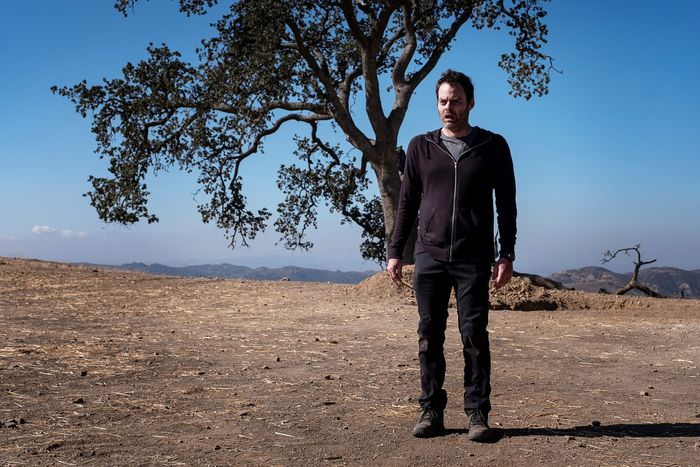Barry Season 3, Episode 8 Recap & Review: The Guillotine Falls
Title: “starting now”
Air date: June 12, 2022
The short of it: A chilling and captivating finale that delivers on a whole season’s worth of mounting dread, “starting now” embraces the full measure of darkness at Barry’s core.
Leading up to this finale, The Ringer’s Alison Herman wrote a piece I kept thinking of while watching “starting now.” In the article, titled “At What Point Do We Stop Calling Barry A Comedy?”, Herman reflects on how “bleak” Barry has become in season three. She notes that creators Bill Hader and Alec Berg have “long since issued a verdict on whether Barry Berkman could ever atone for his deadly past. The answer is a resounding no.” With the deliciously tongue-in-cheek title “starting now” a first wink, this finale chooses devastation at every turn, emerging as a season-capping meditation on the central theme of what happens when a desperately avoided past roars into the present. It also, in the line of thought Herman explores, marks a show subsumed by darkness.

Coming off his near-death experience last episode, Barry believes he’s seen a glimpse of the cursed afterlife he has coming to him. A final glimpse of the beach in this episode reveals Sally and Gene at the back of the group. This launches Barry into a drive to stop them from reaching the same depths he has descended to. What he finds at his apartment is Sally waiting in the bedroom. She asks him if he can terrorize Natalie the way he originally offered to terrorize the BanShee executive. Barry’s response is to try and talk Sally out of it, explicitly referencing his vision. Through this revelation, Barry acts out the classical tragic structure of realizing his flaw too late to avoid that which he desperately hopes to. Here, it comes through the sudden arrival of a surviving biker gang member who Sally kills in self-defense.
The sequence is jaw-dropping from top to bottom. Barry’s morality monologue is interrupted by the biker quietly appearing in the doorway. It is the first of many beats that skew towards horror conventions. The man knocks Barry out, leaving Sally to fend for herself. He brutally beats her. He is near to suffocating her when Sally plays dead then grabs a knife Barry had previously brought from the kitchen. She plunges it into the man’s neck and he stumbles into the sound-proof recording area Barry’s roommates built, paying off on a season-long set-up. In another of the growing list of Hader’s breathtaking directorial choices, Sally grabs a bat and the door swings closed behind her. We cannot hear or see the man as she beats him to death, but Sarah Goldberg unleashes a fury accompanied by blood spatter that echoes the best of the final girls.

When Barry comes to, he pulls her off and hammers into her head that when anyone asks, “Barry did this.” Hader brilliantly holds the camera on Goldberg’s face as she modulates from rage to shock, and then the scene, if not the horror tone, ends. That embrace of convention continues as we catch up with Hank in Colombia. Still chained in the basement, he hears his friends say they’ve gotten out of their cuffs and will break out when the men come to beat them. Yet, all goes terribly wrong. Removed from the violence once again, we are stuck with Hank’s POV from the other side of the wall as he hears his friends fight, and finally, the stomach-churning sounds of some undefined creature tear them to shreds. Screams, gurgles, and finally a pool of blood seep into the room. It is undeniably terrifying.
Once the creature finishes his friends and starts trying to break through the wall to Hank, he breaks free just as a Colombian comes in. Hank gets the gun and kills whatever was on the other side of the wall and then ventures into the rest of the mansion. Above, he finds Cristobal’s wife Elena (Krizia Bajos) staging a Saw-worthy vision of conversion therapy. Cristobal is strapped into an electric chair while a Speedo-clad man dances around and Elena zaps Cristobal to attempt and link his queer identity to pain. She pairs this with speedo-man playing a romantic tune on the piano as she attempts to seduce her husband. Hank blissfully ends the suffering by shooting both her and the man before embracing Cristobal. That embrace is another masterclass in acting, with both Anthony Carrigan and Michael Irby cycling through expressions to finally land on a moment of comfort.

The pair of sequences underscore the episode’s structural and tonal cohesion. In addition to the horror-tinged beats and imagery, this episode is built to explore themes and plots through scenes that zero in on two characters. That continues with the major development in the background: Jim Moss (Robert Wisdom) forces Gene to sit down with him and talk about Janice’s death. Narrative-wise, it is the final turn that gives Jim all he needs to know about the real circumstances of his daughter’s death. But, that’s not the riveting part of the scene. No, what makes it impossible to look away is Wisdom v. Winkler. They sit in two chairs in a concrete garage and Wisdom hammers away with the resolve we learned about when he told Fuches he once talked a man into suicide. Winkler devolves from feigned ignorance to sorrow. It is remarkable.
Similarly, “staring now” pays off the long-gestating showdown between Albert and Barry. As Barry buries the biker, Albert finds him and confronts him about Chris and all the death. Hader initially frames the sequence like a Western standoff: two formidable warriors straight across from one another surrounded only by the wasteland of soil and sand. But then, when Albert moves toward him, Barry collapses into sobs and gasps on the ground. At that moment, Hader unleashes three seasons’ worth of build-up in a torrent of despondence. Albert is as taken aback as the audience. This is no acting trick. No diversion for Barry to pull a hidden gun. The man has broken. Before Albert drives away he gives the episode its title by issuing Barry an ultimatum. “I know evil and Barry and you’re not evil,” he says, going on to swear the killing must end “starting now.”

In classic fashion, Barry is immediately tested. As he drives to his apartment to gather belongings and go on the run, he calls Sally who pretends she’ll come with him only to board a plane back home to Joplin. Barry’s drive is interrupted by Jim, who calls and tells him he needs to come over so they can talk about Janice. Barry hangs up and calls Gene, who is sitting outside Jim’s house with a gun sounding absolutely destroyed. Barry peels out to Gene, Hader working in another virtuoso shot, this time choosing to place the camera behind the windshield as Barry speeds to Gene’s side. Adding another duel, Gene and Barry argue about what to do. Gene wants to kill Jim because the man will “ruin him.” Barry, continuing on his run of desperate empathy for his former loved ones, orders Gene to leave and then storms inside.
Now, all Barry-watching instincts would suggest that once Barry steps inside the episode would end on a bloody hit which again solidifies that Barry will never put his past to rest. It seems that’s what we’re going to get until Barry raises his gun to the back of Jim’s head and the full force of the LAPD S.W.A.T. team swarms the room. The revelation is that Gene partnered with Jim to finally get Barry. His impassioned and unhinged performance outside was nothing more than just that, a top-notch bit of acting. S.W.A.T. marches Barry out past the watching Gene, a measure of vengeance achieved by someone finally choosing to dispel violence for justice. It is moving on a multitude of levels, and leads to a final shot that may be the single greatest piece of image-making Hader has accomplished on the show.

Framed through the living room window, Jim stands to the left, and Gene to the right. In the foreground, we see the couch, lamps, and a smiling portrait of Janice. We hear nothing. Only see the police Jim and Gene talk to slowly walk away to their cars, leaving the two men ensconced by their window frames looking at each other. Gene waves and Jim nods. Gene walks away, leaving a quiet, still, and clearly wretched Jim to stand alone in the darkness. No matter the success of their sting, Janice is still dead. Jim has still lost a daughter. Gene has still lost the love of his life.
With this shot, Hader reinforces the season’s choice to foreground the suffering Barry causes for other characters. Yes, Barry’s capture is the final twist in a season full of them. Yet, the final statement is a reminder that grief is absolute. Unyielding. Undying. I have my theories on where the previously announced season four might go, but they stray far from my mind the longer I marinate in what “starting now” and the season that preceded it accomplished. I can’t help but suggest that Herman has it right. Just as Barry the character has plummeted into gloom, Barry the show has masterfully transitioned from a dark comedy to a shattering drama. It’s hard to say precisely what will come next tonally. All the same, season three has reaffirmed that I will follow anywhere Berg and Hader choose to lead.

Devin McGrath-Conwell holds a B.A. in Film / English from Middlebury College and is currently pursuing an MFA in Screenwriting from Emerson College. His obsessions include all things horror, David Lynch, the darkest of satires, and Billy Joel. Devin’s writing has also appeared in publications such as Filmhounds Magazine, Film Cred, Horror Homeroom, and Cinema Scholars.







